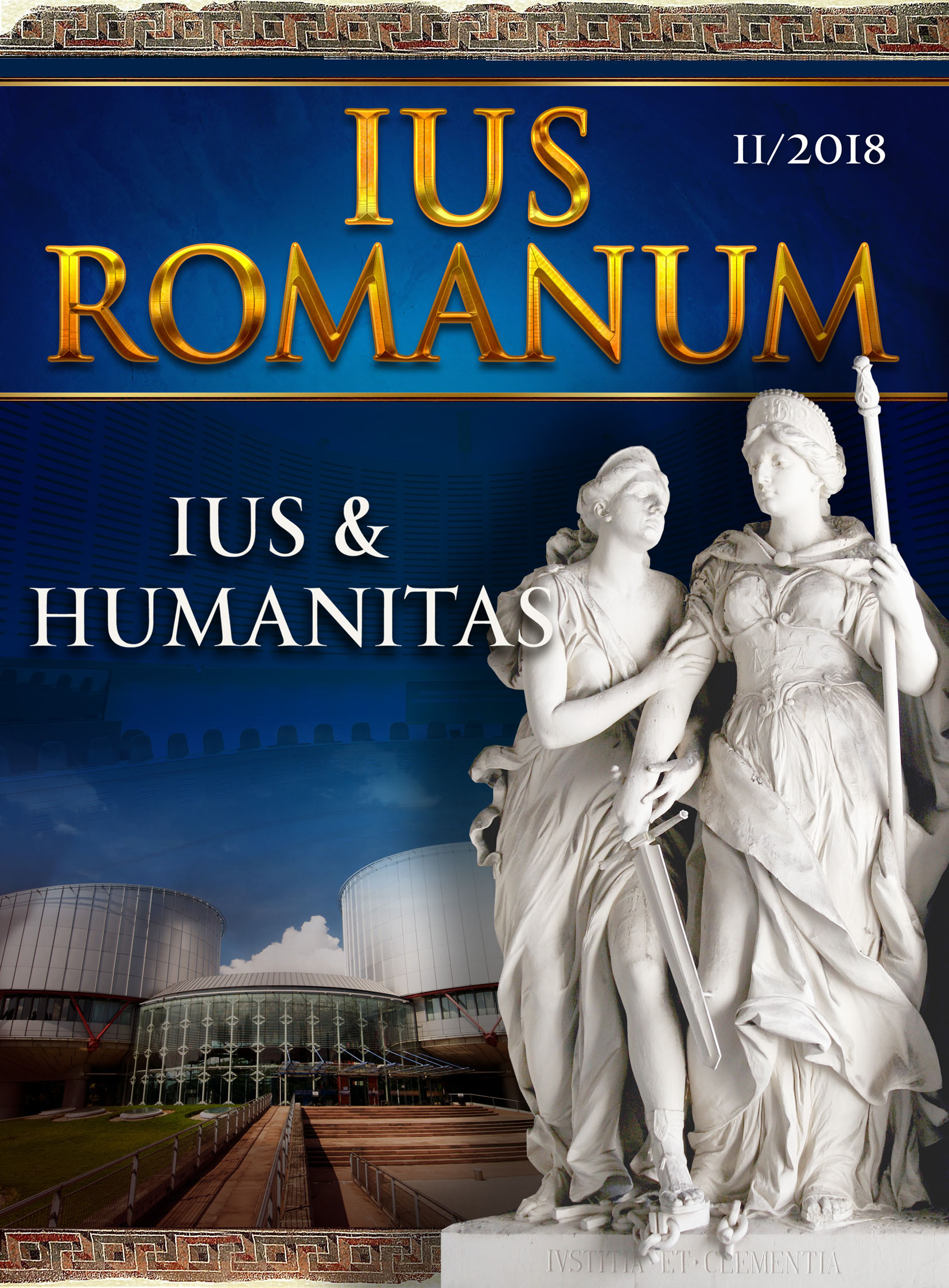THE ROMAN EXPERIENCE IN THE CONCILIATION
BETWEEN IUS AND HUMANITAS
THE ROMAN EXPERIENCE IN THE CONCILIATION
BETWEEN IUS AND HUMANITAS
Author(s): Vanessa Ponte ArrebolaSubject(s): Law, Constitution, Jurisprudence, History of Law, Civil Law, Canon Law / Church Law, EU-Legislation
Published by: Софийски университет »Св. Климент Охридски«
Keywords: Ius; humanitas; nature; officia; iustitia; directum
Summary/Abstract: The present work covers a study about the terms ius and humanitas, going through the idea and concept that both terms had in Greece and, fundamentally, in Rome. The ius or right, appealing to a classic definition of the jurist (ius est ars boni et aequi), is the art or skill of the good and the fair. Directum (law) assumes a moral and religious content with the Stoic philosophy and with the Christianity. Humanitas, on the other hand, is the conduct according to human nature, which manifests itself in benevolent or considerate treatment towards the others. The expression (humanitas) appears in the jurists and in the constituta. The use of the term was generalized by the Christian emperors, who used the expression “humanitas nostra” to speak of themselves. After terminological clarifications, the question is whether the idea of humanitas was present in the Roman law, whose notion in Rome contains many realities that do not fit in all cases with their current meaning. If the ius romanum was really influenced by humanitas, in which institutions it would be more present or evident?
Journal: IUS ROMANUM
- Issue Year: 2018
- Issue No: 2
- Page Range: 358-376
- Page Count: 19
- Language: English

